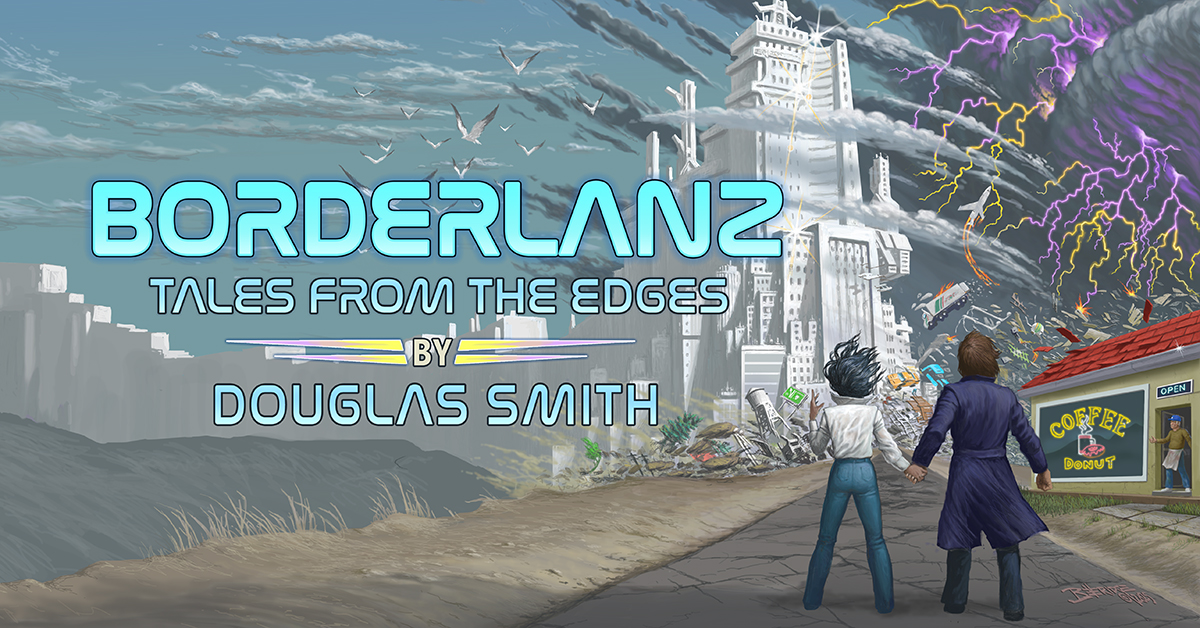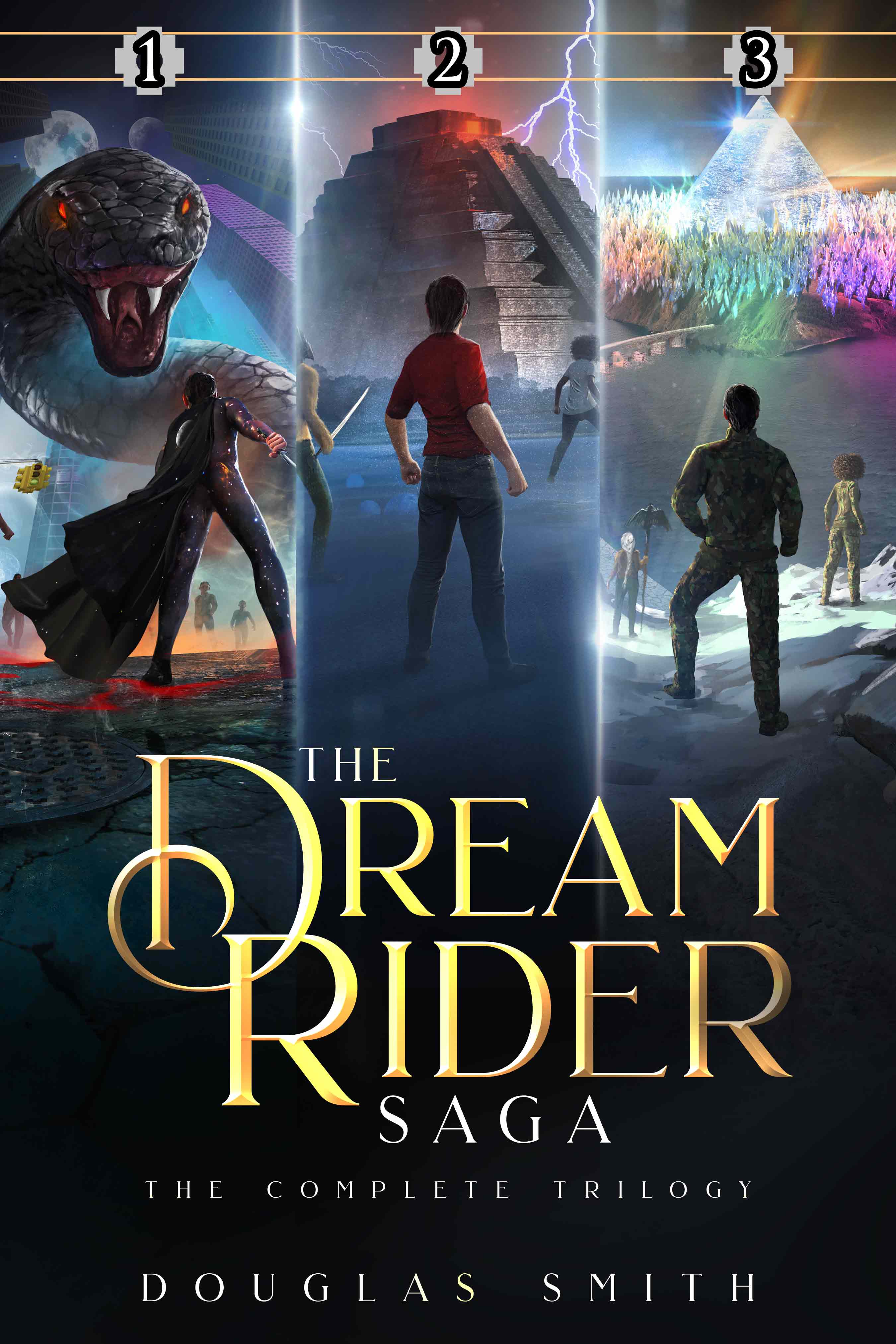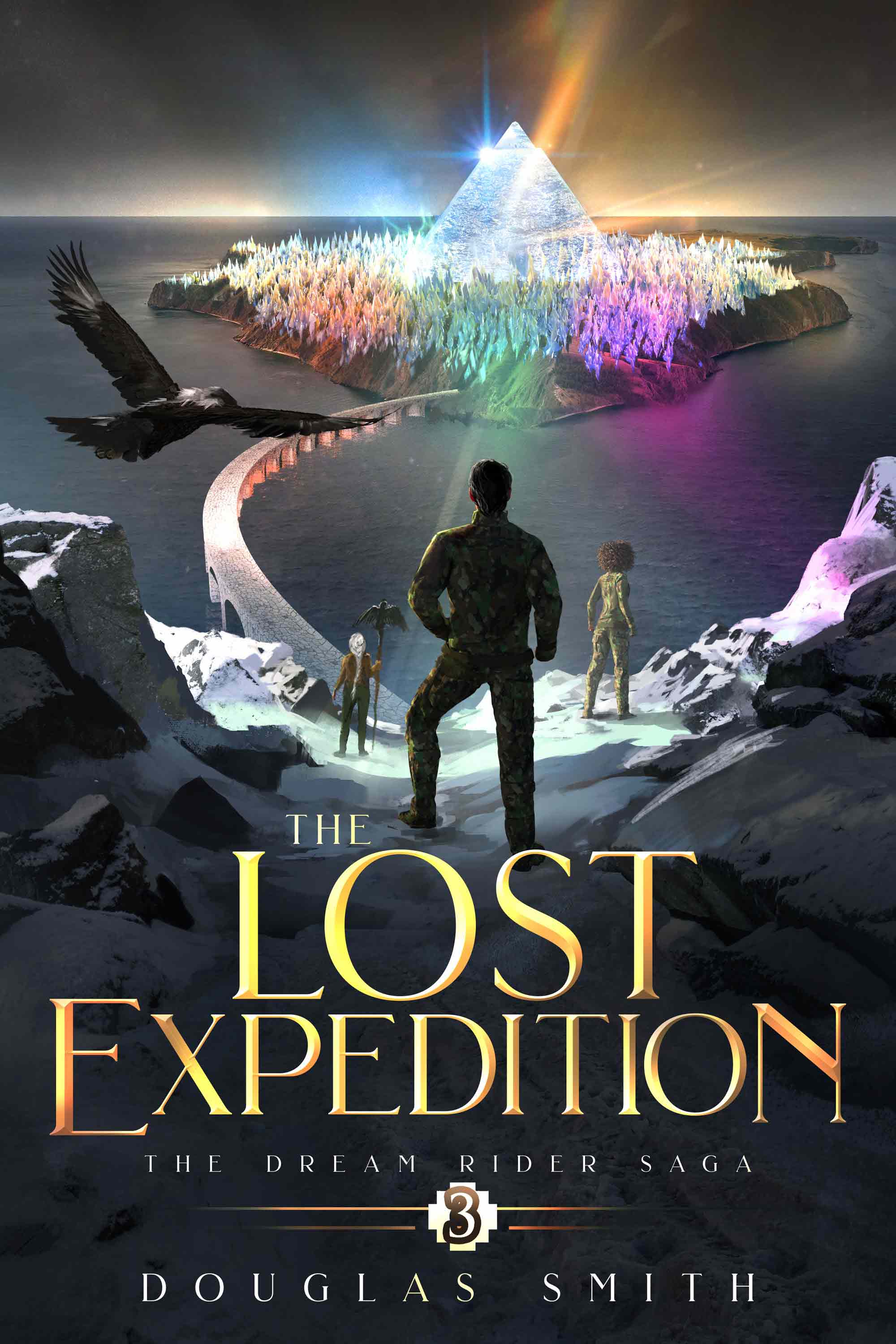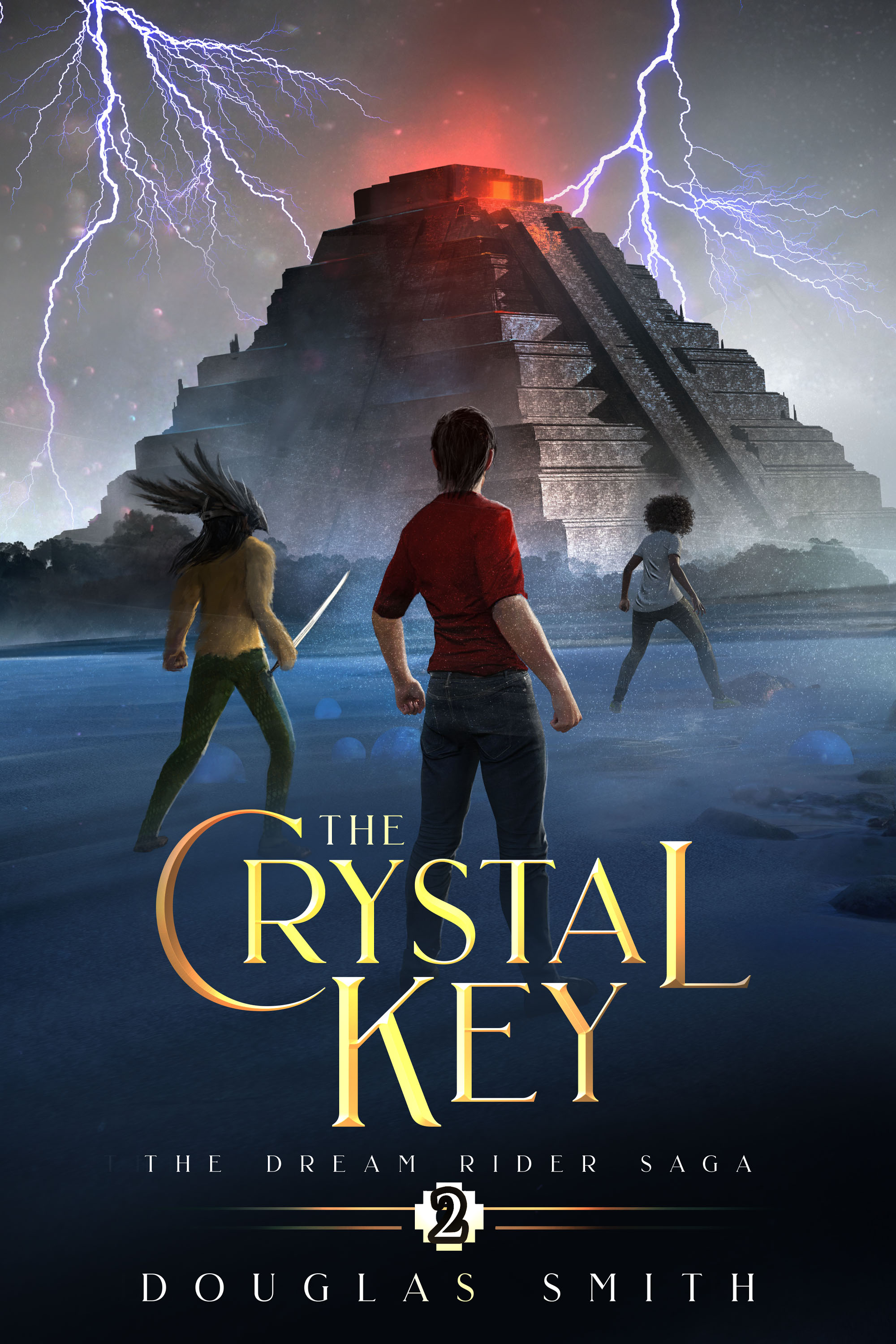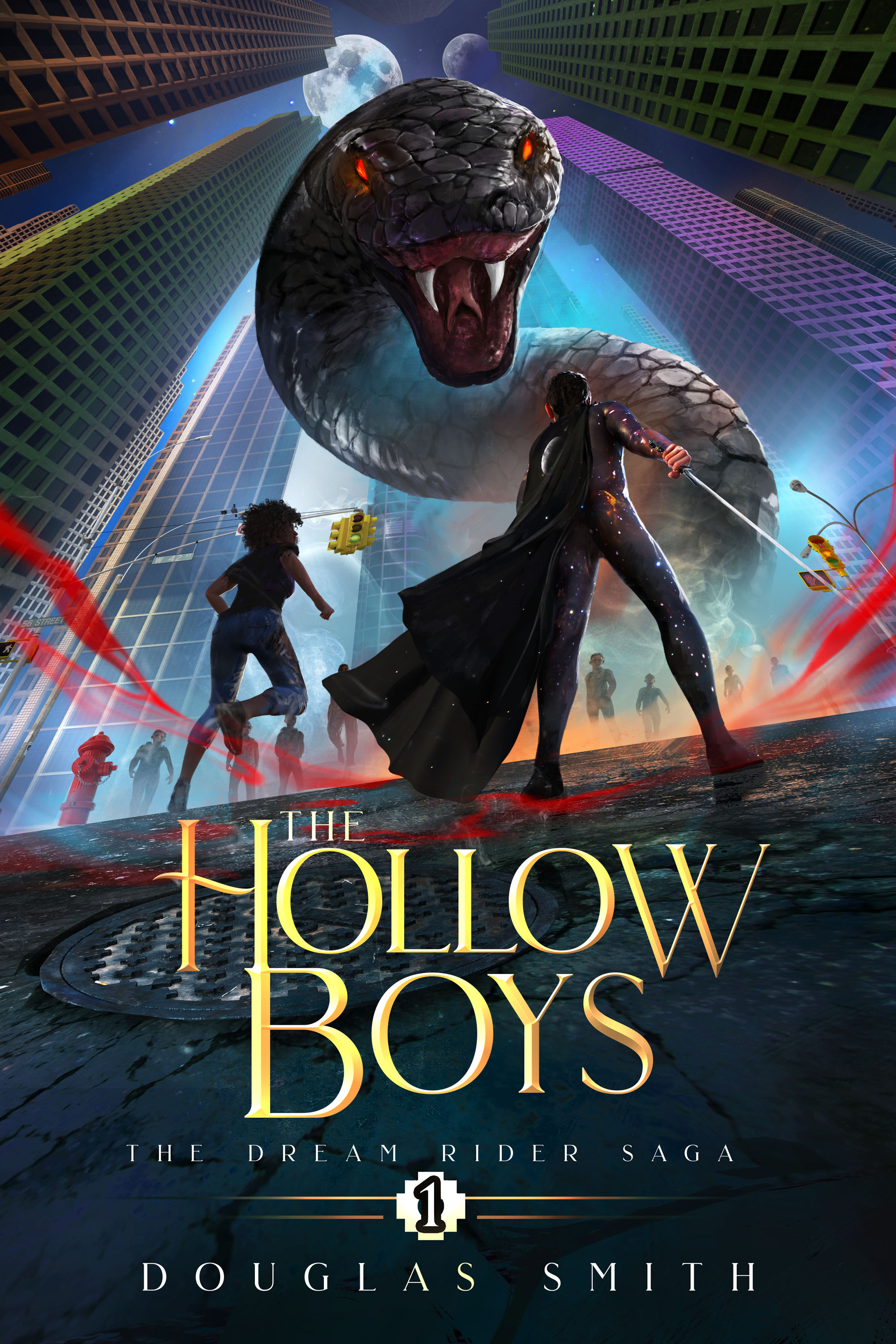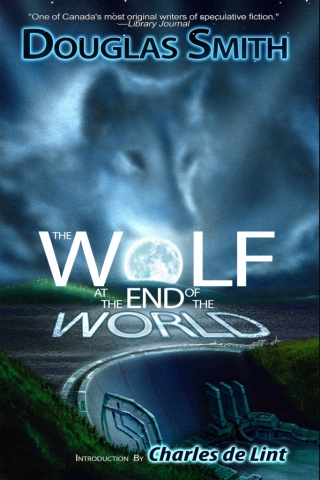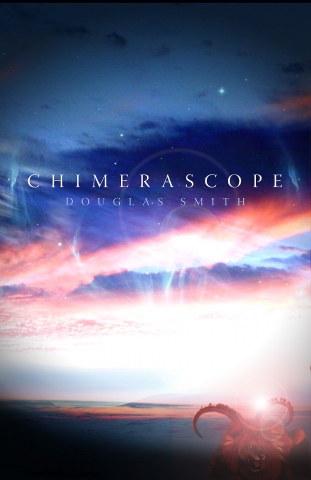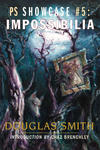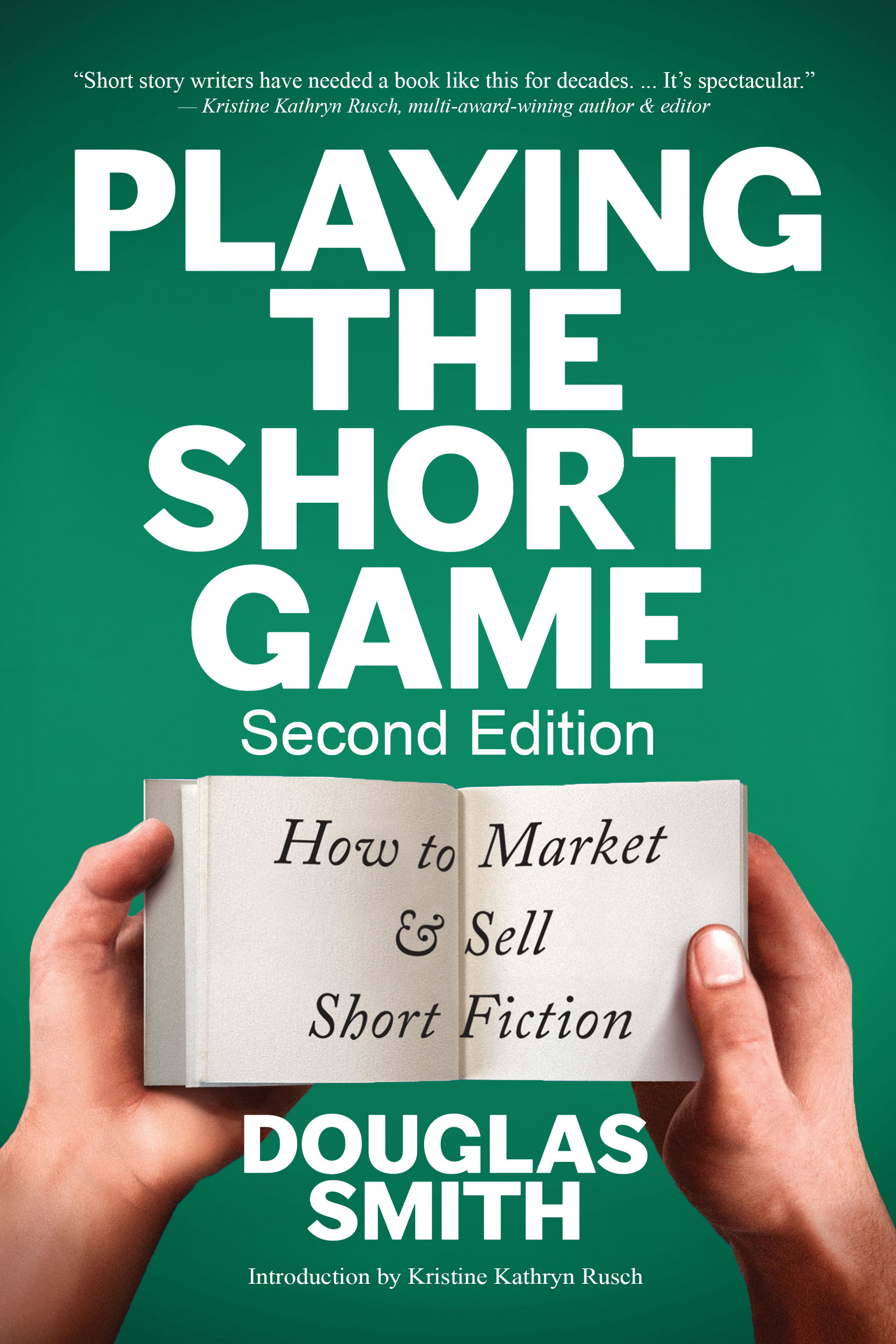Skyping with a Grade 8 class
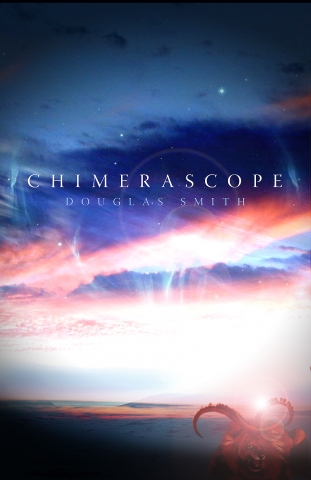 I was approached via Twitter recently by Chris Byron, who teaches grade 8 in the Westmount Charter School in Calgary, Alberta. Chris tweeted that he'd enjoyed my collection Chimerascope (pictured here) and was using some of the stories, such as "Scream Angel" and "Jigsaw" to teach creative writing to his students ("Jigsaw" was written for the anthology Odyssey (Wonder Zone #4), which was aimed at grade 7-8 students with all stories based on the Ontario curriculum for those grades).
I was approached via Twitter recently by Chris Byron, who teaches grade 8 in the Westmount Charter School in Calgary, Alberta. Chris tweeted that he'd enjoyed my collection Chimerascope (pictured here) and was using some of the stories, such as "Scream Angel" and "Jigsaw" to teach creative writing to his students ("Jigsaw" was written for the anthology Odyssey (Wonder Zone #4), which was aimed at grade 7-8 students with all stories based on the Ontario curriculum for those grades).
That in itself was cool enough, but after chatting via Twitter and email, Chris invited me to meet with his students via Skype and answer some questions about my life as a writer. We did the Skype call this week, and it was much fun. Well, for me at least. Hopefully, the kids enjoyed it as well. Here's a summary of some of the questions (italics) and my best recollection of what my answers were, many of which can be found in more detail in my writer's guide, Playing the Short Game.
Q: I like your hockey analogy for how writing professionally takes time. When did you feel you were ready for the Show?
As a writer, you don't know if you can sell professionally until you actually do. I started writing short fiction and recommend it for new writers, because short stories are a great way to learn how to write prose, even if you plan to eventually move to novels. Plus short stories let me find out early if I could actually sell anything I wrote. I was writing stories for about a year and sending them out before I got my first sale.
Q: As a writer, what does your day entail? Is it ritualized to heighten productivity?
I still have a day job, so my "writing days" tend to vary. Ideally, I get started by 10-11am, and usually write either at the local library or coffee shop. My only real rituals are coffee and listening to classical music while I write. Preferably baroque classical, with Vivaldi being a favourite. The key point is the music can't have lyrics and can't be too emotional (as the emotion will not likely match the emotion of what I'm writing. The music drowns out nearby chatter, acting as pleasant white noise. I write for 4-5 hours with periodic 5 min breaks every half hour or so.
Q: Computer, graphic organizer, pen & paper, audio to text, ipad - what works for you?
Laptop for writing. A small Moleskine notebook or voice memos on my phone for ideas that come along when I'm away from the computer. For short stories, I keep a computer file of story ideas. For novels, I'll have a novel notebook file with all the characters and their arcs, setting details, plot outline ideas, and research notes.
Q: When writing horror or the undefinable, do personal experiences inspire or, as you've mentioned in one interview, you're a "character writer" - once the character's "arc is fleshed out" the story has a life of its own?
I've only used a specific personal experience once to write a story, and that story was mainstream, not speculative. Yes, I'm a "character writer" – I generally start with a character or set of characters in a situation. Story ideas tend to come in three forms – a character, an idea, or a setting. I've had stories that have started in all those ways, but until I know what characters are in the tale, and until I really know those characters as if they are real people, I can't write the story.
Q: Were there some butterfly moments that, at that time, seemed inconsequential, but in time had a huge affect on your life? (The Artist's Way?)
Definitely. There were two such moments, both happening within a week of each other, both of which finally pushed me to start to chase the writing dream seriously. One was coming across the book The Artist's Way by Julia Cameron. It's essentially a 12-week course on how to recover the creativity we're all born with but which society beats out of us as we grow up. The other was the death of my favourite speculative fiction writer, Roger Zelazny, far too young at 56 from cancer. That drove home that we're not guaranteed of having the years we hope for. I started working on my first story the next week.
Q: We've also been looking at executive functions. They're the skills/traits needed to get things done (time awareness, organization, impulse control, flexible thinking, emotional control, short term memory, self monitoring, task initiation). To be a writer, I would imagine you'd be strong in all these areas, was this nature or a nurture instance?
Yeah, I'd give myself a check mark on most of those. I'd say it was a combination of nature and nurture. I like to be organized and am a self-starter and goal focused. My business career also helped with a lot of those skills. You either learn to add the skills you don't have, or you don't succeed. My consulting career taught me about how to treat tasks as projects and to deliver against deadlines.
Q: How do you deal with the intensity of the job?
The writing job? I rarely find it intense. The key is to understand what deadlines you have coming up for delivering manuscripts, signing contracts, delivering workshops, appearances, interviews, etc.. Then just develop a plan for what you need to do to deliver each, then work back to figure out what you need to have done by when.
Q: I read you sold a story that had been previously rejected 65 times. What things in your life helped you develop that depth of resilience?
One of the traits a writer needs to develop is a thick skin and a belief in their own work. A writer will always receive more rejections than acceptances. So you either develop a stubborn confidence in your work—or you quit. It helped when I started receiving "positive rejections" early in my career—short notes from editors saying they liked the story (but not enough to buy it) and they'd like to see more from me. Then once I'd sold a story, I knew I could do it and just kept at it. Plus your writing gets better, and you can better judge the worth of a story. I knew my oft-rejected stories were good—they just needed to find the right market.
Q: I'm fascinated by amount of information you put in print concerning the business side of your art. Ages ago my wife went to Emily Carr (school). She said that a lack of business training was the biggest failing of the school; they forgot that their clients were sole proprietors. Do you think this is a common failing in preparing for a life in the arts?
Absolutely. Most writing programs and classes focus on the creative side of writing. Even then, many teach how to deconstruct fiction, which is far different from constructing it. You learn to write by writing, by practising it like any skill. And by reading—a lot. Writing programs need to balance creative courses with business courses. Most beginners have no idea of the business basics of writing, starting with understanding the licensing of rights: what happens when someone wants to "buy" their story. Beginners often give away too many rights to their work without even knowing it.
Q: What gets you excited about the day?
A writing day? Just being able to write, to spend time with my characters. Even if I'm at hard part in a book, a tough day of writing is still a good day.
